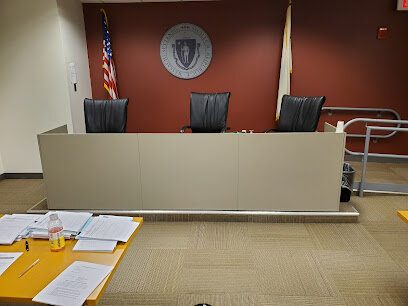Best Lawyers in Connecticut
Share your needs with us, get contacted by law firms.
Free. Takes 2 min.
Or refine your search by selecting a city:
List of the best lawyers in Connecticut, United States

United States Legal Questions answered by Lawyers
Browse our 38 legal questions in United States and read the lawyer answers, or ask your own questions for free.
- Internal investigation of sexual harassment in US
- I’m from [company removed], based in Hong Kong. One of my firm’s US employee reported to internal legal that I have sexually harassed her during my last trip to New York. An internal investigation is kicking off and I will be interviewed by firm legal. Also I have the opportunity... Read more →
-
Lawyer answer by M BILAL ADVOCATES, CORPORATE & TAX CONSULTANTS
If you are facing a sexual harassment allegation and an internal investigation in the U.S., do not submit a written statement or attend an interview without proper legal guidance. Anything you say can significantly impact your career, reputation, and potential...
Read full answer - Prenup Review and Signature
- I am looking for a Brazilian attorney to legally review a prenup with my fiancée. The prenup is only 18 pages written in both English and Portuguese. My fiancée speaks and reads English. The prenup follows USA/Virginia law. Once reviewed and signed by a lawyer with my fiancée, she can... Read more →
-
Lawyer answer by Castro Magalhães Law Offices
February 23, 2026 Proposal for Legal Services: Review of Prenuptial Agreement Dear Client, I am pleased to submit this proposal for the provision of legal services related to the review of a prenuptial agreement drafted in accordance with the laws...
Read full answer - Prenup Review and Signature
- I am looking for a Brazilian attorney to legally review a prenup with my fiancée. The prenup is only 18 pages written in both English and Portuguese. My fiancée speaks and reads English. The prenup follows USA/Virginia law. Once reviewed and signed by a lawyer with my fiancée, she can... Read more →
-
Lawyer answer by Castro Magalhães Law Offices
Castro Magalhães Sociedade Individual de Advocacia Carlos HB de Castro Magalhães OAB/RJ 080.783 | OAB/SP 501.014 Avenida Presidente Vargas, 3131, sala 604, Cidade Nova, Rio de Janeiro, RJ Avenida Paulista 1471, conjunto 511, CP 3622, Bela Vista, São Paulo, SP...
Read full answer
United States Legal Articles
Browse our 33 legal articles in United States written by expert lawyers.
- New York Climate Superfund Act Liability 2026 Guide
- This new US climate cost recovery law is retroactive and targets large historical greenhouse gas (GHG) emitters in energy, industrial, and logistics sectors as "responsible parties" for a $75 billion fund. Liability is strict: the government does not need to prove fault, negligence, or causation of specific climate harms, only... Read more →
- NY 2026 Corp Tax: Thresholds & Franchise
- For tax years beginning on or after January 1, 2026, New York businesses will only be required to make estimated tax payments if their expected New York tax (including any MTA surcharge) is at least $5,000, up from $1,000. Many small and some mid-sized New York corporations and S corporations... Read more →
- Are Non-Competes Enforceable in New York?
- Non-competes are still legal in New York and most of the United States, but courts apply strict scrutiny and often refuse to enforce broad, form agreements. Governor Hochul vetoed New York's broad non-compete ban (often referenced as S4641A / S3100A) in December 2023, so as of my last update there... Read more →
About Hiring a Lawyer in Connecticut, United States
Hiring a lawyer in Connecticut is an important step when facing legal challenges or needing professional advice on complex matters. The process typically starts with identifying the area of law involved, such as family law, criminal defense, personal injury, real estate, or business transactions. Most individuals begin by searching through recommendations, trusted online directories, or the Connecticut Bar Association to find qualified attorneys. Once you have a list of potential lawyers, schedule consultations to discuss your case, ask about their experience, and understand their fee structure. Connecticut attorneys are regulated by the Connecticut Judicial Branch and adhere to rules of professional conduct, ensuring ethical standards and client protection.
Why You May Need a Lawyer
There are various situations where you might need the assistance of a lawyer in Connecticut. Some common reasons include:
- Family Law Issues - Matters like divorce, child custody, support, or adoption require legal expertise to ensure rights and responsibilities are properly addressed.
- Criminal Charges - Whether facing minor infractions or serious felony charges, lawyers can provide defense strategies and navigate court proceedings.
- Personal Injury Claims - For injuries sustained in car accidents, slips and falls, or medical malpractice, lawyers can help recover compensation and negotiate with insurance companies.
- Estate Planning - Drafting wills, trusts, or planning for incapacity ensures your wishes are honored and assets are protected.
- Real Estate Transactions - Buying, selling, or leasing property requires legal review of contracts and resolution of disputes.
- Business Matters - Starting or running a business may involve forming entities, drafting contracts, and handling disputes.
- Employment Issues - If you experience workplace discrimination, wrongful termination, or contract disputes, legal counsel can protect your interests.
Local Laws Overview
Connecticut has its own set of laws and statutes in addition to federal laws. Several key legal areas are especially relevant for those seeking attorneys in the state:
- Statute of Limitations - Connecticut imposes specific time limits for filing lawsuits, which vary for different types of cases. Missing these deadlines may forfeit your right to pursue a case.
- Family Law - Connecticut courts address both no-fault and fault-based divorces, with equitable distribution of property and specific guidelines for child support and custody.
- Criminal Law - The state classifies offenses as infractions, misdemeanors, or felonies, each with distinct procedures and potential penalties.
- Tenant and Landlord Laws - Connecticut law regulates lease agreements, eviction procedures, and renter protections.
- Consumer Protection - The Connecticut Department of Consumer Protection enforces laws related to unfair business practices, fraud, and product safety.
- Employment Law - State employment laws cover minimum wage, overtime, paid leave, and workplace discrimination, often providing additional protections beyond federal requirements.
Frequently Asked Questions
How do I find a qualified lawyer in Connecticut?
You can search for attorneys through the Connecticut Bar Association, local bar associations, or use the lawyer referral service provided by the Connecticut Judicial Branch.
What should I ask during my initial consultation with a lawyer?
Ask about their experience in handling cases like yours, their fee structure, communication practices, and your legal options. Bring relevant documents for review.
How much does it cost to hire a lawyer in Connecticut?
Fees vary depending on the complexity of your case and the lawyer’s experience. Some charge flat rates, while others use hourly or contingency fees. Always clarify costs before engaging services.
What if I cannot afford a lawyer?
You may qualify for legal aid or pro bono services if you meet income guidelines. The Statewide Legal Services of Connecticut provides assistance to low income residents.
Are there free legal resources or clinics in Connecticut?
Many towns and cities, as well as organizations like Connecticut Legal Services, offer free legal clinics or advice for specific issues such as housing or family law.
Do I have to appear in court for all legal matters?
Not always. Your lawyer may be able to resolve certain issues out of court through negotiation or settlement. However, court appearances may be necessary for some cases.
How do I verify an attorney’s license in Connecticut?
You can check the status of a Connecticut lawyer's license using the official Connecticut Judicial Branch attorney lookup.
Can a lawyer represent me in any court in Connecticut?
Most Connecticut lawyers can represent clients in state courts. For federal matters, the attorney must be admitted to practice in the applicable federal court.
What is attorney-client privilege?
Attorney-client privilege means that communications between you and your lawyer are confidential. This allows for open discussion of your case without fear that information will be disclosed.
Can I change lawyers if I am not satisfied?
Yes, you can change lawyers at almost any time. Make sure to review any contractual obligations and notify your lawyer in writing if you make this decision.
Additional Resources
- Connecticut Judicial Branch - Official source for court information, forms, and attorney lookup. Visit
- Statewide Legal Services of Connecticut - Offers free legal aid to eligible residents. Visit
- Department of Consumer Protection - Handles business, product, and consumer complaints. Visit
Lawzana helps you find the best lawyers and law firms in Connecticut through a curated and pre-screened list of qualified legal professionals. Our platform offers rankings and detailed profiles of attorneys and law firms, allowing you to compare based on practice areas, experience, and client feedback.
Each profile includes a description of the firm's areas of practice, client reviews, team members and partners, year of establishment, spoken languages, office locations, contact information, social media presence, and any published articles or resources. Most firms on our platform speak English and are experienced in both local and international legal matters.
Get a quote from top-rated law firms in Connecticut, United States — quickly, securely, and without unnecessary hassle.
Disclaimer:
The information provided on this page is for general informational purposes only and does not constitute legal advice. While we strive to ensure the accuracy and relevance of the content, legal information may change over time, and interpretations of the law can vary. You should always consult with a qualified legal professional for advice specific to your situation.
We disclaim all liability for actions taken or not taken based on the content of this page. If you believe any information is incorrect or outdated, please contact us, and we will review and update it where appropriate.
Refine your search by selecting a practice area.
Accidents & Injuries
Banking & Finance
Bankruptcy & Debt
Business
Civil & Human Rights
Consumer Rights
Corporate & Commercial
Criminal Defense
Employment & Labor
Energy, Environment & ESG
Family
Immigration
Insurance
Intellectual Property
Lawsuits & Disputes
Media, Technology and Telecoms
Notary Services
Private Client
Real Estate
Browse law firms by city in Connecticut
Refine your search by selecting a city.


































